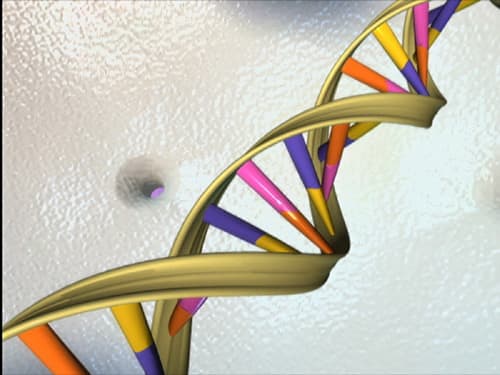Advertisement
Questioning Last Week's Big DNA News

The New York Times led with it. The Wall Street Journal splashed it, and NPR aired it, and we piggybacked with a local angle. The media herd was stampeding.
But I have to confess, it was hard to decipher from the press releases and papers exactly what the fuss was about. Bulletin: What had been known as "junk DNA" was in fact full of important gene switches. But I thought we already knew that. There was a vivid verbal image of a "Google Maps" for the genome. But what would that mean, exactly?
So I was immediately drawn to today's blog post by evolutionary biologist Michael Eisen: Blinded by Big Science: The lesson I learned from ENCODE is that projects like ENCODE are not a good idea. An authoritative contrarian voice was calling into question the value of the huge, expensive ENCODE project that garnered all those headlines, and of such projects in general, given the grant funding they take away from the individual scientists who have traditionally produced most discoveries. Read the full post to get the impact of the argument, but here's a preview:
I believed then, and still believe now, that looking at biology on a big scale is often very helpful, and that it can make sense to let people who are good at doing big projects, and who can take advantage of economies of scale, generate data for the community.
But the lesson I learned from ENCODE is that projects like ENCODE are not a good idea.
American biology research achieved greatness because we encouraged individual scientists to pursue the questions that intrigued them and the NIH, NSF and other agencies gave them the resources to do so. And ENCODE and projects like it are, ostensibly at least, meant to continue this tradition, empowering individual scientists by producing datasets of “higher quality and greater comprehensiveness than would otherwise emerge from the combined output of individual research projects”.
But I think it is now clear that big biology is not a boon for individual discovery-driven science. Ironically, and tragically, it is emerging as the greatest threat to its continued existence.
The most obvious conflict between little science and big science is money. In an era when grant funding is getting scarcer, it’s impossible not to view the $200m spent on ENCODE in terms of the ~125 R01′s it could have funded. It is impossible to score the value lost from these hundred or so unfunded small projects against the benefits of one big one. But a awful lot of amazing science comes out of R01′s, and it’s hard not to believe that at least one of these projects would have been transformative.
But, as bad as the loss of individual research grants is, I am far more concerned about the model of independent research upon which big science projects are based.
This program aired on September 10, 2012. The audio for this program is not available.
